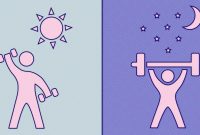The founder of the Barber Surgeons Guild and hair restoration expert Dr. Justin Rome claims that over the years, he has had many discussions with patients concerning supplements and whether or not they can assist treat hair loss.
“It is impossible not to come across numerous sorts of supplements and their zealous claims when researching therapies for hair loss,” adds Rome.
However, recent findings imply that these assertions might have some merit.
The systematic reviewTrusted Source, which was based on 30 studies and was published online in JAMA Dermatology on November 30, suggests that nutritional supplements may be useful in treating some patients with hair loss.
In order to treat hair loss, researchers wanted to evaluate and accumulate data on dietary and nutritional therapies.
However, a number of conditions, including vitamin shortages, can lead to hair loss.
For instance, individuals with anemia who have low iron levels may be losing their hair and require a supplement. However, the authors intended to examine how well supplement therapies worked in individuals without a recognized deficiency.
Three databases were utilized. They looked for any English-language studies on dietary and nutritional interventions for patients with hair loss or alopecia that were published between the database’s creation and October 20, 2021.
30 papers were ultimately included by the authors. They then evaluated the data’s quality in the first few days of January 2022.
Their analysis revealed that numerous supplements, including capsaicin, omegas 3 and 6 with antioxidants, zinc, and pumpkin seed oil, provided the highest-quality evidence for supplements for hair loss.
The dietary supplements with lower-quality proof of reducing hair loss were vitamin D and kimchi.
According to the scientists, side effects were infrequent and modest for each therapy they examined.
The authors encouraged physicians to engage in shared decision-making discussions about the potential risks and benefits after finding evidence in their research that nutritional supplements may play a part in treating hair loss.


